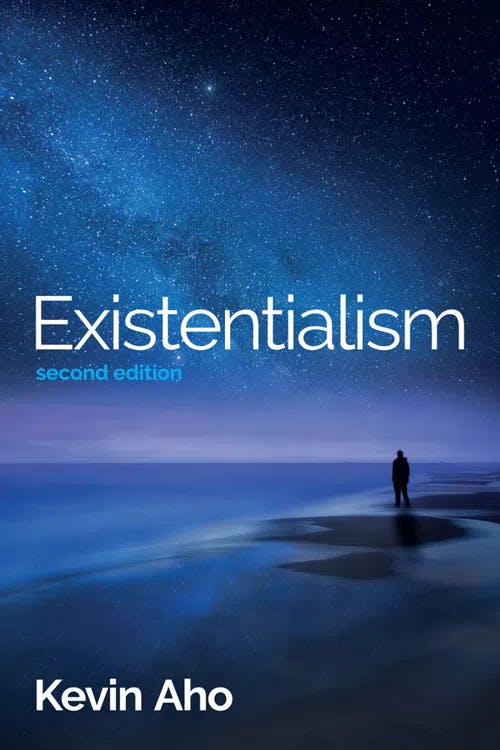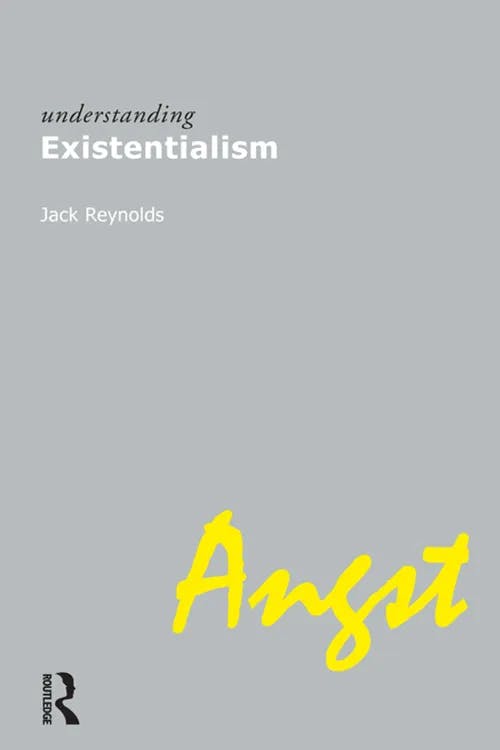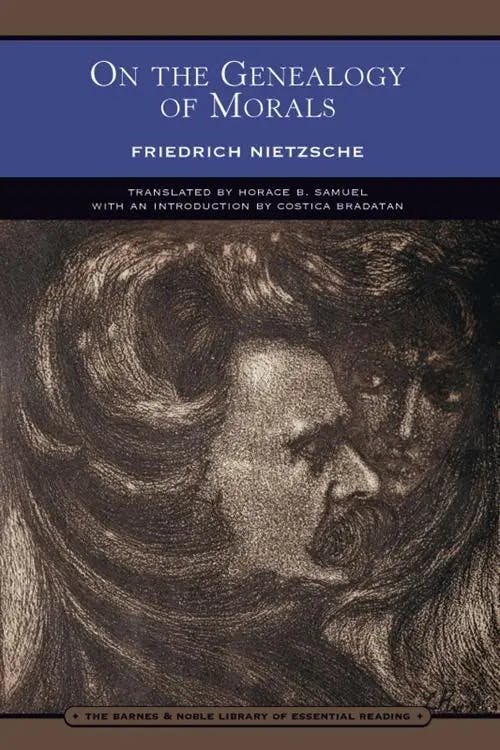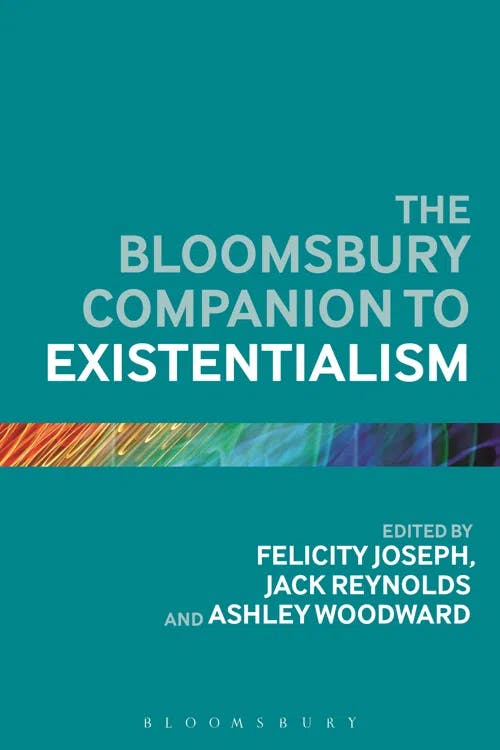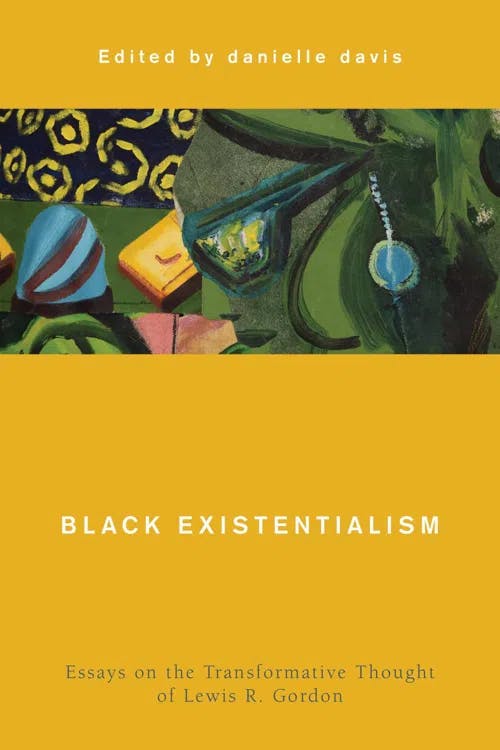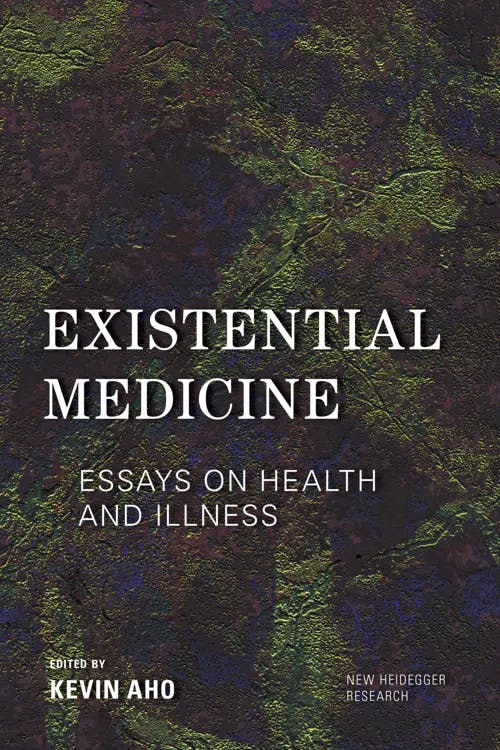What is Existentialism?
MSt, Women's, Gender & Sexuality Studies (University of Oxford)
Date Published: 27.04.2023,
Last Updated: 21.12.2023
Share this article
Defining existentialism
Existentialism is the philosophy that has perhaps most captured the public imagination. It asks fundamental questions about morality and the meaning of life, like “how should I live?”, “what is the point?” & "why am I here?". Existentialism has roots in the nineteenth century, but properly developed in the first half of the twentieth century as reason and rationality seemed to break down in the face of worldwide political and ethical crises (namely, WW2 and The Holocaust).
Philosophers associated with existentialism are far from united in their views. In fact, the term itself does not appear in any of the “canonical” texts of the tradition; though closely associated with existentialism, philosophers like Martin Heidegger and Albert Camus rejected the label, and the movement’s nineteenth-century founders had never heard the term. Of existentialism’s major representatives, only Sartre and Simone de Beauvoir embraced the term, two years after it was coined by French philosopher Gabriel Marcel in 1943.
Although these philosophers cannot be boiled down to a cohesive school of thought, existentialism can be defined broadly by its interest in what it means and feels like to exist as a human in the world; existentialism asks big questions about individual freedom and morality. The fact that existentialists do not ascribe to a clear system is intentional: they value individualism and reject the idea that we should live our lives guided by any universal set of standards. Existentialists see us as radically free individuals, free to shape our own identities and make our own choices.
Key elements of existentialism
Despite the differing views among existentialist philosophers, a number of common themes can be found across their writings. This list is not a set of required beliefs for every philosopher labeled existentialist, but rather a series of related ideas which recur in existentialist works. In Existentialism (2020), Kevin Aho provides the following list of shared concerns:
1. A core belief of existentialism is summarized by Sartre in the phrase “existence precedes essence.” Existentialists believe that humans are different from other things — plants, animals, cultural objects — because we exist: we make choices, we reflect on the past, and we are always moving toward the future. There is no pre-given “essence” that determines who we are; instead, we are self-making creatures, forming ourselves through the actions that we take. We are always in the process of becoming.
2. In this process of self-creation, existentialists see the self as a constant struggle between “facticity” and “transcendence” (a tension de Beauvoir describes as “ambiguity”). While we are not determined by a pre-given essence, we also must face our “facticity,” or our factual nature as embodied, situated, material beings: we have physiologies, sexualities, socio-historical contexts, etc. At the same time, as Aho writes,
insofar as we are self-conscious and aware of these limitations, we can transcend or surpass them by taking a stand on them, that is, by choosing to interpret them in certain ways, by giving them meaning, and thus we create our own identities. (2020)
Kevin Aho
insofar as we are self-conscious and aware of these limitations, we can transcend or surpass them by taking a stand on them, that is, by choosing to interpret them in certain ways, by giving them meaning, and thus we create our own identities. (2020)
3. Because of our capacity for transcendence, existentialists generally argue that we are free and responsible for who we are and what we do. There are no “moral absolutes, utilitarian calculations, or natural laws that can explain or justify our actions” (Aho, 2020). This freedom is frightening: existentialists recognize that it can be terrifying to recognize ourselves as entirely alone and responsible for our choices and actions.
4. Existentialists take on an “insider’s perspective,” believing that human existence cannot be studied from an objective, third-person point of view. Theories about human existence always come from the context of our personal situation.
5. Because existentialists do not believe in detached or “rational” observation, they value the importance of individual visceral experiences, such as emotions. Moods like anxiety (Heidegger), nausea (Sartre), guilt (Kierkegaard), and absurdity (Camus) can “shake us out of our everyday complacency and self-deception by disclosing the fundamental freedom and finitude of our situation” (Aho, 2020).
6. The responsibility of the freedom to make ourselves and our own choices can be terrifying, causing us to hide in conformist roles. However, when we aim to break from those roles and embrace our transcendent possibility, we strive toward “authenticity.” Many existentialists grapple with how to be authentic to one’s self in the face of absurdity and death. This differentiates existentialism from nihilism: while nihilists believe that life is meaningless, existentialists believe that life is absurd, but that the individual can still find meaning in their own existence.
7. While existentialists do not believe in a universal moral system, they are invested in how an individual can act ethically in the world. As Aho writes, “we are not free from responsibility for our actions or from the obligation to cultivate the ideal of freedom for others” (2020). We must come to our own moral conclusions, but we are responsible for their consequences.
Development of existentialism: key figures
The questions that concern existentialism can be traced throughout history (such as in Hamlet’s famous “to be or not to be” speech). But existentialism as a cohesive philosophy began to develop in the nineteenth century before taking full form in the twentieth century. Here, we provide an overview of some key existentialist figures.
Søren Kierkegaard (1813–1855)
While some scholars point to proto-existentialist sentiments in Blaise Pascal’s Pensées [Thoughts] (1670, [2014]) and the influence of F. W. J. von Schelling’s (1827–1854) concept of “existence” on later philosophers, Søren Kierkegaard is usually considered the founder of existentialism. The Danish philosopher rejected orthodox doctrines of Christianity, arguing for a more individualistic form of faith that accepted how divinity is, by nature, unknowable to us. For Kierkegaard, belief in God requires individual choice, a personal leap of faith. While previous philosophers aimed to explain faith through reason, Kierkegaard insisted the two were fundamentally incompatible. In Understanding Existentialism (2014), Jack Reynolds explains how existentialism and religion can be combined:
If faith involves nothing more than believing in something without proof, then this is very much necessary to existential thought, for which there are no external facts or values that dictate our action although we are nevertheless confronted with the necessity of acting and choosing. Without the guidance of universal rules of morality, human nature or a knowable God who has issued certain indisputable commandments [...], we must endow the world with meaning and it is only we who can do this.
Jack Reynolds
If faith involves nothing more than believing in something without proof, then this is very much necessary to existential thought, for which there are no external facts or values that dictate our action although we are nevertheless confronted with the necessity of acting and choosing. Without the guidance of universal rules of morality, human nature or a knowable God who has issued certain indisputable commandments [...], we must endow the world with meaning and it is only we who can do this.
Kierkegaard was also foundational in existentialism’s investment in emotions. He presented despair and dread as important affective experiences for individuals when faced with the inadequacy of rationalism.
According to Kierkegaard, most people flee from this despair into an inauthentic life. He proposes three stages of life. The aesthetic stage embraces pleasure, sensuality, and beauty, but it is trivial. The ethical stage tries to ascribe to absolute moral standards based on rationality or societal norms, but it is transitory. The religious stage involves the individual, standing apart from social standards or universalizing ideals, finding genuine, individual morality without the dogmatism or conviction of the ethical stage. To move to the next stage requires a leap of faith, and only the last stage is truly authentic.
As Kierkegaard writes on the ethical stage in Either/Or (1843), available in The Essential Kierkegaard (2013),
The person who chooses himself ethically has himself as his task, not as a possibility, not as a plaything for the play of his arbitrariness. Ethically he can choose himself only if he chooses himself in continuity, and then he has himself as a multiply defined task. (2013)
Søren Kierkegaard, edited by Howard V. Hong and Edna H. Hong
The person who chooses himself ethically has himself as his task, not as a possibility, not as a plaything for the play of his arbitrariness. Ethically he can choose himself only if he chooses himself in continuity, and then he has himself as a multiply defined task. (2013)
For more of Kierkegaard’s writings, including Fear and Trembling, Philosophical Fragments, and Concluding Unscientific Postscript, see The Essential Kierkegaard.
Friedrich Nietzsche (1844–1900)
While Kierkegaard’s existentialism welcomed faith, German philosopher Friedrich Nietzsche declared that God is dead. In On the Genealogy of Morals (1887, [2009]), Nietzsche describes the development of an “aristocratic” or “master morality” and, alternatively, a “slave morality,” which he accused Christianity of promoting. The “aristocratic morality” originates from the aristocrat’s own certainty in his beauty, goodness, and happiness: “it acts and grows spontaneously, it merely seeks its antithesis in order to pronounce a more grateful and exultant ‘yes’ to its own self” (Nietzsche, 1887, [2009]). The aristocrats declare their own goodness before degrading others. Meanwhile, the “slave morality” begins with the denigration of others. Nietzsche writes,
the slave morality says “no” from the very outset to what is “outside itself,” “different from itself,” and “not itself”: and this “no” is its creative deed. [...] [T]he slave-morality requires as the condition of its existence an external and objective world, to employ physiological terminology, it requires objective stimuli to be capable of action at all — its action is fundamentally a reaction. (1887, [2009])
Friedrich Nietzsche
the slave morality says “no” from the very outset to what is “outside itself,” “different from itself,” and “not itself”: and this “no” is its creative deed. [...] [T]he slave-morality requires as the condition of its existence an external and objective world, to employ physiological terminology, it requires objective stimuli to be capable of action at all — its action is fundamentally a reaction. (1887, [2009])
This “slave morality” results in what Nietzsche calls ressentiment, a disgust with life that fuels this hatred of the powerful. In short, “aristocratic morality” depends only on itself, whereas “slave morality” requires the construction of evil outside of itself. Nietzsche advocated for the rejection of moral systems, particularly the “slave morality” which he believed controlled his society.
Nietzsche argued that there is no arbiter of morals other than the experience of individual satisfaction. His method of determining individual morality is summarized in a thought experiment known as the “eternal return of the same,” described in The Gay Science (1887, [2012]): when faced with a decision regarding a course of action, imagine that whatever you choose will recur indefinitely. Nietzsche challenges us to act in a manner that we’d be prepared to defend over and over again, repeating our choice endlessly. Nietzsche’s rejection of universal moral systems and emphasis on the individual influenced future existentialists.
Martin Heidegger (1889–1976)
German philosopher Martin Heidegger significantly influenced the development of both existentialism and phenomenology, a related philosophical movement with its own core concerns and trajectory (see our study guide, “What is Phenomenology?”). In his landmark work Being and Time (1927, [2008]), Heidegger called for philosophy to return to an examination of human existence and how “Being” is experienced by “beings.” Heidegger introduced the term Dasein — a combination of the German words “da” (there) and “sein” (being) — to describes humans as beings in the world, situated within our surroundings rather than separate from what seems external to us. Heidegger also argued that we are oriented toward future possibilities, the openness of which is always tempered by the reality of mortality, or our “being-towards-death.”
As Peter Gratton writes in The Bloomsbury Companion to Existentialism,
the fundamental claim of Heidegger, from his earliest writings to his last, is that Being, and hence beings, does not have a stable essence, but is a ‘how’, a ‘manner’ or a ‘way’. Our existence is not reducible to biological accounts of our bodily matter, just as our being-towards-death has a meaning beyond evolutionary accounts of the survival instinct. (2014)
Edited by Felicity Joseph, Jack Reynolds, and Ashley Woodward
the fundamental claim of Heidegger, from his earliest writings to his last, is that Being, and hence beings, does not have a stable essence, but is a ‘how’, a ‘manner’ or a ‘way’. Our existence is not reducible to biological accounts of our bodily matter, just as our being-towards-death has a meaning beyond evolutionary accounts of the survival instinct. (2014)
These ideas influenced Sartre’s formulation of existence preceding essence. Heidegger’s emphasis on individual subjectivity and situatedness are important in the development of existentialism.
Jean-Paul Sartre (1905–1980)
The most famous of the existentialists, Jean-Paul Sartre was a French philosopher, novelist, playwright, and political activist who made significant contributions to existentialism and phenomenology. Sartre believed that there is no God or deity, no overarching plan, and no predetermined human essence shaping our existence. Being just is, but we still have the freedom to make it meaningful.
In the landmark text Being and Nothingness (1943, [2021]), Sartre theorizes three different kinds of being: being-in-itself, being-for-itself, and being-for-others. Being-in-itself describes the being of an object; it has no consciousness of existence and does not attempt to be more than what it is. Something being-in-itself has no meaning with a consciousness to affirm it. Consciousness, on the other hand, is being-for-itself. A being-for-itself understands itself as existing in time, oriented toward possibilities, seeking transcendence, and free to define its own condition. Being-for-others refers to intersubjective relationships, complicated because other consciousnesses are also free. The being-for-itself can become an object used by others. Sartre believes that when we experience another’s judgment — when we feel shame — we become the objects of another; the process of being-for-others is the reduction of others to objects. This experience of shame from the “look” of others proves that other consciousnesses exist.
Simone de Beauvoir (1908–1986)
Simone de Beauvoir is a central figure in the development of existential and feminist philosophies. In The Ethics of Ambiguity (1947, [2011]), she emphasizes how our meaning is constantly suspended between the facticity of our material existence and the transcendence of our individual freedom. She outlines how we can live up to the responsibilities of that radical freedom.
De Beauvoir’s most famous work of philosophy is The Second Sex (1949, [2011]) which applies existentialism and phenomenology to the experience of women’s oppression. Offering a powerful revision to Sartre’s theories of existentialism, de Beauvoir argues that women are prevented from acting on the freedom of their existence through not only material oppression but also a form of ontological oppression, or a hindering of women’s own meaning-making abilities: women think of themselves as the other, inferior to men, and as immanent (material, worldly) objects rather than beings with transcendent power.
Existentialism propels de Beauvoir’s famous statement that “one is not born, but rather becomes, woman” (1949, [2011]). Women are not born with a predetermined feminine essence in line with stereotypical gender roles; through the limits on their experiences in the world and the facticity of their condition, women come to act in certain ways and see themselves as inferior.
Literature and existentialism: Camus and others
Many existentialists explored their ideas in forms other than traditional philosophical treatises, like novels and plays. Literature is particularly useful to existentialists, as Joseph, Reynolds, and Woodward explain:
first, it ‘shows’ the concrete, instead of abstracting and generalizing in theoretical terms; second, the ‘art’ of literature (as well as other arts) can be understood to consist in breaking the stereotypical linguistic and conceptual structures through which we habitually understand everyday life and experience, allowing us a kind of insight into existence; and third, it appeals to and engages a fuller range of human faculties (emotion, imagination, empathy, etc.) than abstract intellectual theory, and these other faculties are frequently seen by existentialists as essential to existential insight. (2014)
Albert Camus (1913–1960) is an existentialist philosopher and writer particularly well-known for his novel L’Étranger (1946, [1989]), usually translated as The Stranger. One of the most significant literary works of existentialism, the novel follows Meursault, a French man living in Algeria, who kills an unnamed “Arab” man. Camus captures Meursault’s disconnection from the world around him as he recognizes the structures of life are inexplicable and arbitrary.
Camus’s key contribution to existentialism is the concept of absurdity: we desire a unified explanation for the world, but we are constantly faced with the unavailability of that explanation. Camus believed that the essential question for humans (and, by extension, philosophy) was the question of whether or not to kill oneself when faced with this absurdity. Choosing to live with this tension — without resorting to totalizing despair or false systems of meaning — is the foundation of Camus’s notions of rebellion and ethical living.
Other writers associated with literary existentialism include Fyodor Dostoevsky, Anton Chekhov, Franz Kafka, Leo Tolstoy, Rainer Maria Rilke, and Ralph Ellison. Aho argues that
these literary approaches are one of the major reasons why existentialism became the cultural phenomenon it is. With little or no training in academic philosophy, readers were provided with vivid and accessible points of entry into the ultimate questions of meaninglessness, freedom, and death. (2020)
Existentialism since Sartre: responses and applications
Because of its emphasis on individuality, existentialism can sometimes appear ill-equipped for collective political action. Compared to theories that account for how our identities and desires are societally constructed, which have significantly influenced critical theory and scholarship, existentialism’s implication that we can simply choose not to follow the systems of meaning around us seems to fall short. Marxist, feminist, and Black theorists, including de Beauvoir herself, criticized early existentialism’s failure to account for systems of oppression and developed their own branches of the philosophy.
For example, Franz Fanon drew upon existentialism and phenomenology in his theories of colonialism and race, and Lewis Gordon built upon Fanon’s theories to lay the foundations of Black existentialism and postcolonial phenomenology. As danielle davis writes in Black Existentialism (2019),
Gordon’s innovation in phenomenology was to articulate how what he calls ontological suspension — which is his formulation of the Husserlian methodological movement of parenthesizing or bracketing the natural attitude or everyday presumptions — was also a reorientation of relationships with things taken for granted, including the notion of a completely colonized reality. Gordon argues that there is no such thing as completeness of this kind in the human world, which means behind each relationship are other incomplete ones.
danielle davis
Gordon’s innovation in phenomenology was to articulate how what he calls ontological suspension — which is his formulation of the Husserlian methodological movement of parenthesizing or bracketing the natural attitude or everyday presumptions — was also a reorientation of relationships with things taken for granted, including the notion of a completely colonized reality. Gordon argues that there is no such thing as completeness of this kind in the human world, which means behind each relationship are other incomplete ones.
Gordon calls for a phenomenology that embraces nuance, manifests agency through communicative relationships, and takes responsibility for liberatory production of thought. Marxist, feminist, and Black existentialists aim to understand how our facticity affects our understanding of our transcendent possibility. In other words, oppression can work at an ontological level, affecting our very ability to make meaning of ourselves.
Existentialism has gained a reputation for being an outdated method of philosophy — important for the development of the field and indicative of a particular age of anxiety at the start of the twentieth century, but not worthy of serious philosophical consideration today. Many contemporary philosophers have pushed back against this characterization of existentialism. The contributors to Existentialism and Contemporary Cinema (2011) find Sartre’s theories continually relevant to film studies, and popular films from 2001: A Space Odyssey (Kubrick, 1968) to The Truman Show (Weir, 1998), from Donnie Darko (Kelly, 2001) to Everything Everywhere All At Once, ask existential questions. Steve Dixon fuses insights from existentialism and cybernetics to analyze art and performance in Cybernetic-Existentialism (2019), and Leah Kalmanson extends existentialism beyond its narrow European associations to engage with East Asian philosophies in Cross-Cultural Existentialism (2020).
Existentialism’s applications to health and medicine have seen particular growth in recent years. Phenomenology’s emphasis on embodied experience and existentialism’s serious consideration of negative moods like dread and anxiety make these philosophies well-equipped for addressing physical and mental illness experiences. They encourage a view of the patient not as a problem to be solved but rather as an individual having a specific experience of the world — one which natural science alone may not be able to understand. As Aho writes in Existential Medicine (2018),
existential medicine has little to do with applying medical science to fix the malfunctioning body. It is, rather, concerned with unearthing the meaning-structures of human existence itself and exploring the ways in which these structures are modified and disrupted by illness. This kind of phenomenological analysis enables the reader to get a sense of “what it means” and “what it feels like” to be ill with the aim of “understanding” the experience rather than “explaining” its causes.
Kevin Aho
existential medicine has little to do with applying medical science to fix the malfunctioning body. It is, rather, concerned with unearthing the meaning-structures of human existence itself and exploring the ways in which these structures are modified and disrupted by illness. This kind of phenomenological analysis enables the reader to get a sense of “what it means” and “what it feels like” to be ill with the aim of “understanding” the experience rather than “explaining” its causes.
Responding to the COVID-19 pandemic, editor Monica Hanaway collects in Existentialism in Pandemic Times (2022) timely essays examining existentialism’s usefulness for therapists, health professionals, and leaders in times of health crisis.
Through these examples of recent publications embracing existentialism for a variety of purposes, we can see how existentialism remains a useful philosophical tool for examining our contemporary world. What makes me who I am? How should I act? Where do I find meaning in life? These core questions of human existence are precisely what existentialism aims to address. These questions have been asked for thousands of years, and they will continue to be asked for years to come.
Further reading on Perlego
Existentialism: A Guide for the Perplexed by Steven Earnshaw
Situating Existentialism: Key Texts in Context, edited by Jonathan Judaken and Robert Bernasconi
Existentialism, Authenticity, Solidarity by Stephen Eric Bronner
Existential Therapies by Mick Cooper
Neo-Existentialism by Markus Gabriel
Existentialism FAQs
What is existentialism?
What is existentialism?
Who are the key existentialist thinkers?
Who are the key existentialist thinkers?
What are the best books on existentialism?
What are the best books on existentialism?
What is the difference between existentialism and nihilism?
What is the difference between existentialism and nihilism?
Bibliography
2001: A Space Odyssey (1968) Directed by Stanley Kubrick. Available at: HBO Max.
Aho, K. (2020) Existentialism. 2nd edn. Wiley. Available at: https://www.perlego.com/book/1584674/existentialism-an-introduction-pdf.
Aho, K. (ed.) (2018) Existential Medicine: Essays on Health and Illness. Rowman & Littlefield International. Available at: https://www.perlego.com/book/668205/existential-medicine-essays-on-health-and-illness-pdf.
Boulé, J.-P. and McCaffrey, E. (eds.) (2011) Existentialism and Contemporary Cinema: A Sartrean Perspective. Berghahn Books. Available at: https://www.perlego.com/book/540724/existentialism-and-contemporary-cinema-a-sartrean-perspective-pdf.
Camus, A. (1946, [1989]) The Stranger. Translated by M. Ward. Vintage.
davis, d. (ed.) (2019) Black Existentialism: Essays on the Transformative Thought of Lewis R. Gordon. Rowman & Littlefield International. Available at: https://www.perlego.com/book/1525533/black-existentialism-essays-on-the-transformative-thought-of-lewis-r-gordon-pdf.
De Beauvoir, S. (1947, [2011]) The Ethics of Ambiguity. Translated by B. Frechtman. Philosophical Library. Available at: https://www.perlego.com/book/516997/the-ethics-of-ambiguity-pdf.
De Beauvoir, S. (1949, [2011]) The Second Sex. Translated by C. Borde and S. Malovany-Chevallier. Vintage.
Dixon, S. (2019) Cybernetic-Existentialism: Freedom, Systems, and Being-for-Others in Contemporary Arts and Performance. Routledge. Available at: https://www.perlego.com/book/1379348/cyberneticexistentialism-freedom-systems-and-beingforothers-in-contemporary-arts-and-performance-pdf.
Donnie Darko (2001) Directed by Richard Kelly. Available at: HBO Max.
Everything Everywhere All at Once (2022) Directed by Daniel Kwan and Daniel Scheinert. Available at: Paramount+.
Hanaway, M. (ed.) (2022) Existentialism in Pandemic Times: Implications for Psychotherapists, Coaches, and Organisations. Routledge. Available at: https://www.perlego.com/book/3535393/existentialism-in-pandemic-times-implications-for-psychotherapists-coaches-and-organisations-pdf.
Heidegger, M. (1927, [2008]) Being and Time. Translated by J. Macquarrie and E. Robinson. HarperCollins.
Joseph, F., Reynolds, J. and Woodward, A. (eds.) (2014) The Bloomsbury Companion to Existentialism. Bloomsbury. Available at: https://www.perlego.com/book/394795/the-bloomsbury-companion-to-existentialism-pdf.
Kalmanson, L. (2020) Cross-Cultural Existentialism: On the Meaning of Life in Asian and Western Thought. Bloomsbury. Available at: https://www.perlego.com/book/1690640/crosscultural-existentialism-on-the-meaning-of-life-in-asian-and-western-thought-pdf.
Kierkegaard, S. (2013) The Essential Kierkegaard. Princeton University Press. Available at: https://www.perlego.com/book/735770/the-essential-kierkegaard-pdf.
Nietzsche, F. (1887, [2009]) On the Genealogy of Morals. Translated by H. B. Samuel. Barnes & Noble. Available at: https://www.perlego.com/book/3712767/on-the-genealogy-of-morals-barnes-noble-library-of-essential-reading-pdf.
Nietzsche, F. (1887, [2012]) The Gay Science. Translated by T. Common. Dover Publications. Available at: https://www.perlego.com/book/113363/the-gay-science-pdf.
Pascal, B. (1670, [2014]) The Thoughts of Blaise Pascal. Translated by C. Kegan Paul. Good Press. Available at: https://www.perlego.com/book/1821827/the-thoughts-of-blaise-pascal-pdf.
Reynolds, J. (2014) Understanding Existentialism. Routledge. Available at: https://www.perlego.com/book/1560169/understanding-existentialism-pdf.
Sartre, J.-P. (1943, [2021]) Being and Nothingness. Translated by S. Richmond. Washington Square Press/Atria Books. Available at: https://www.perlego.com/book/2823731/being-and-nothingness-pdf.
Shakespeare, W. (2014) Hamlet. Simon & Schuster. Available at: https://www.perlego.com/book/781913/hamlet-pdf.
The Truman Show (1998) Directed by Peter Weir. Available at: The Roku Channel.
MSt, Women's, Gender & Sexuality Studies (University of Oxford)
Paige Elizabeth Allen has a Master’s degree in Women’s, Gender, and Sexuality Studies from the University of Oxford and a Bachelor’s degree in English from Princeton University. Her research interests include monstrosity, the Gothic tradition, illness in literature and culture, and musical theatre. Her dissertation examined sentient haunted houses through the lenses of posthumanism and queer theory.

